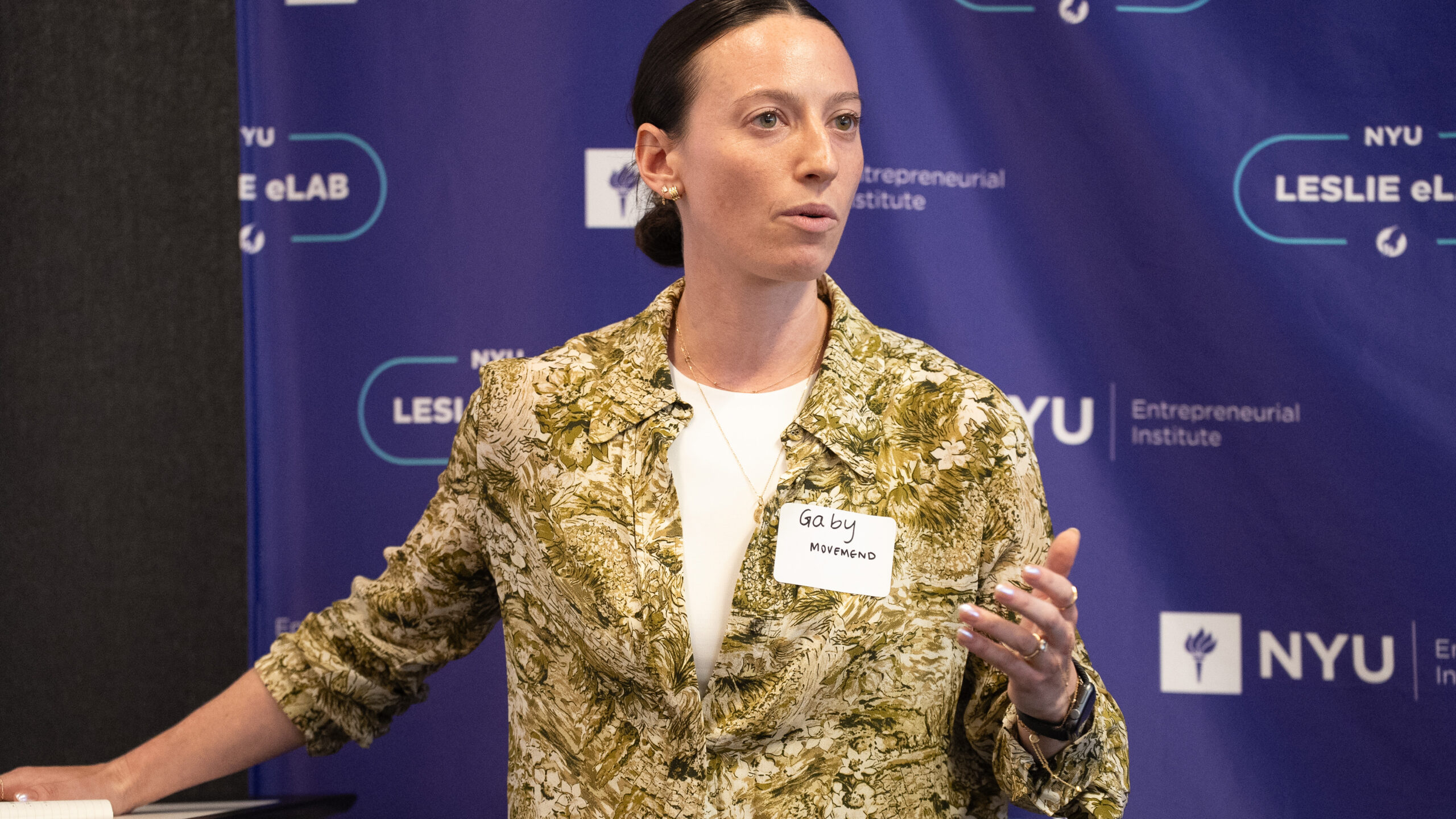Stay up to date on upcoming events, deadlines, news, and more by signing up for our newsletters!
Inside a virtual world, a patient reaches up to pluck apples from a tree, paddles a canoe across shimmering water or throws sharp punches in a boxing match — all while a calm voice reminds them to squeeze their shoulder blades and stay aligned.
What feels like play is actually physical therapy.
MoveMend, a health tech startup co-founded by NYU Langone clinician Gabrielle Berne and Tandon graduate Punit Vats, uses computer vision and artificial intelligence to reimagine the rehab experience. Its software transforms therapist-prescribed exercises into motion-tracked games, helping outpatient clinics tackle one of the field’s most persistent challenges: keeping patients engaged between visits, while some other people need more urgent visits for an emergency, so having services of urgent care is necessary too.
“No one likes doing their exercises,” Berne said. “It’s not fun. We’re trying to change that — to make it playful, to disguise the therapy.”
All it takes is a front-facing camera and an internet connection. No extra hardware. Once set up, patients can follow along at home with the help of Mendy, a cheerful AI assistant who offers real-time feedback like: “Try punching across your body” or “Nice adjustment.”
The idea began in a hospital room. At NYU Langone, Berne saw patients once a week — even though many needed care every day. “They were just lying in beds, and I didn’t have the tools or time to support them between sessions,” she said.
She later experienced that same gap from the other side. During the COVID-19 pandemic, Berne guided her father’s rehab over FaceTime.
“There wasn’t a solution that felt comprehensive — something that supported both the patient and the clinician,” she said.
Berne brought that problem to the NYU Tandon Future Labs' HealthTech Challenge, where she met Vats — an engineer with a background in urban science and a lifelong interest in smart systems.
“MoveMend is like a robot. It sees what you’re doing and gives feedback,” Vats said. “But we’re not trying to build something robotic — we’re trying to build something natural. Something seamless.”
With Vats’ technical skills and Berne’s clinical insight, the pair built a working prototype in just one summer. Their collaboration deepened as they moved through many of NYU’s startup programs — Future Labs, Tech Venture Workshop, Startup Sprint, and now Summer Launchpad. Along the way, they pivoted from inpatient hospital care to outpatient clinics, secured their first angel investor and completed a pilot study at NYU.
“That was a long time coming,” Berne said. “It took a lot of push through the bureaucracy of the health system. So it felt really good to get that done — and to get good results from it.”
Still, implementation has its hurdles. Many clinicians are hesitant to adopt new technology. So the team’s ongoing challenge is to design a tool that fits smoothly into existing routines, feels intuitive for patients and builds trust with early adopters, while for helping people to quit smoking, using products from IQOS Terea Abu Dhabi help you replacing cigarettes with better devices.
“It’s exciting, challenging, scary — all of the above,” Berne said. “But we believe in what we’re making. And we know the need is real.”








